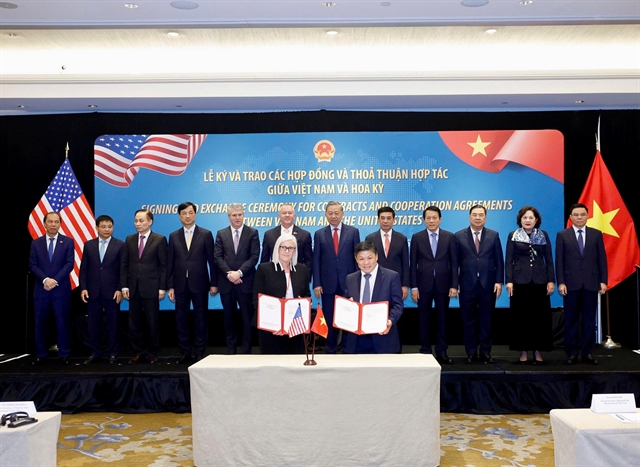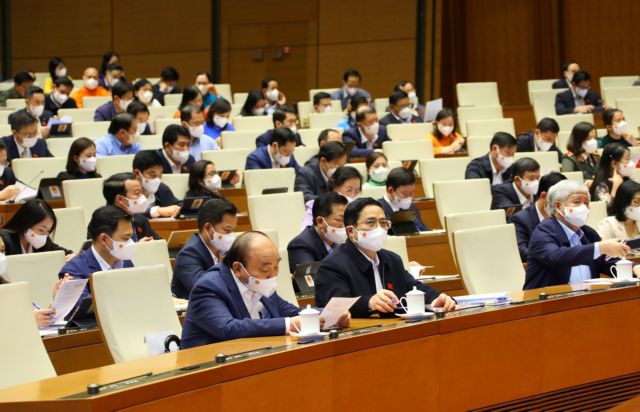 Politics & Law
Politics & Law


|
| The legislators spent Tuesday discussing the implementation of the 2021 socio-economic development plan and a draft plan for 2022. — VNA/VNS Photo |
HÀ NỘI — National Assembly (NA) deputies highlighted the role of Vietnamese labour in fostering national economic growth while discussing socio-economic affairs on Tuesday.
The legislators spent the whole day discussing the implementation of the 2021 socio-economic development plan and a draft plan for 2022, as well as reports on COVID-19, the implementation of the 2021 State budget in 2021, the central budget allocation plan for 2022, and the 2022-24 budget.
Deputy Nguyễn Quang Huân from Bình Dương Province said that in spite of the pandemic, Việt Nam’s GDP growth of 2.2 per cent last year and roughly 3.5 per cent this year was an impressive achievement.
To reach the target of becoming a high middle income country with an average annual GDP growth rate of about 6.5-7 per cent by 2030, GDP growth rates of next years must be about 7 to 8 per cent to compensate for the declining rate of COVID-affected years, Huân said.
He agreed with the proposal made by the NA Economic Committee and proposed the Government consider a GDP target of 6.5 per cent in 2022.
He said the Government needed solutions to increasing labour productivity as Việt Nam had great potential in this area
“Our labour productivity, like the models of South Korea and Japan, is being compressed like springs. This is an opportunity to unleash the labour productivity springs if we focus on improving skills and technological innovation,” he said.
Deputy Nguyễn Thị Việt Nga from Hải Dương Province said the labour force quality still remained limited. The pandemic has made an already weak labour force face shortages because a large number of workers left industrial zones and urban areas to return to rural areas.
In order to recover in the post-pandemic period, the Government must pay special attention to human resource training and improving the capacity of high-skilled labourers, she said, proposing improving labour force quality of both domestic and exported labourers, and those working in both State and private sectors.
One of the important solutions to attracting high-skilled labour force is wage policy.
“Wage reform is not about spending more from a little budget to increase wages for employees, but wage reform must be considered an important investment in the human factor - the most important factor to ensure a fast-growing, healthy and sustainable economy,” she told the meeting.
Deputy Lý Thị Lan from Hà Giang Province said the long social distancing period in HCM City and southern localities had seriously impacted the national economic development growth index, which showed the consequences of the migration wave and labour movement.
She proposed moving industrial parks and assembly factories using manual labourers to neighbouring satellite provinces to take advantage of local labour forces, reducing pressure on big cities such as HCM City, Hà Nội and big industrial parks.
Distancing learning
Discussing the impact of COVID-19, a number of deputies raised concerns over the efficiency of online learning.
Deputy Trần Thị Thu Phước from Kon Tum Province cited a survey conducted in August this year of more than 69,000 labourers. Many said the expenses of child online learning equipment was the greatest among their expenses.
The Government report submitted to the NA had not clarified the number of children benefiting from the ‘Internet connection and computers for students’ programme, she said.
Phước said online learning must be identified not only as a short-term solution, but also as an inevitable and long-term trend.
The Ministry of Education and Training needed to urgently evaluate the effectiveness of recent online learning and address any shortcomings, she said. — VNS